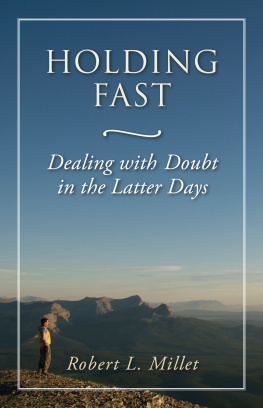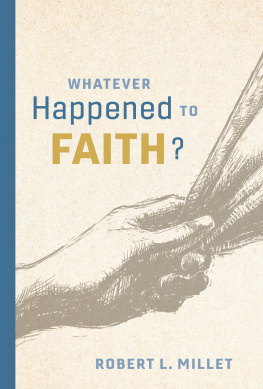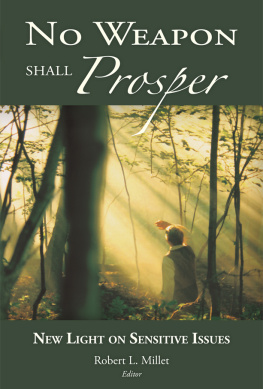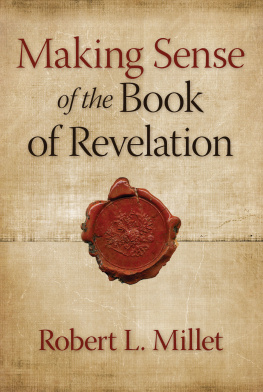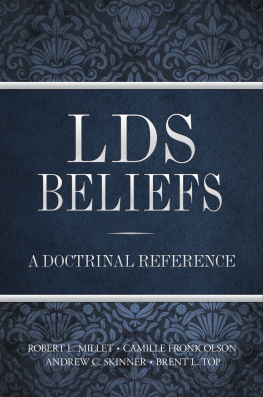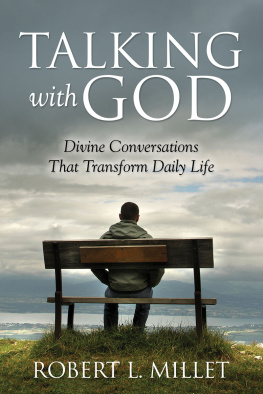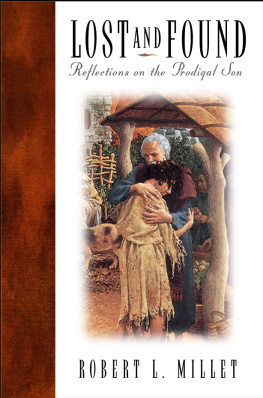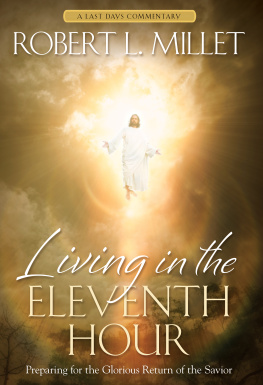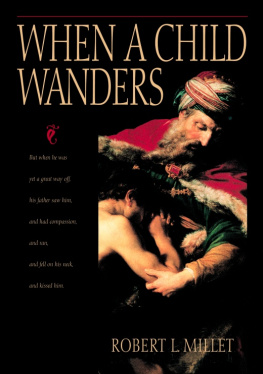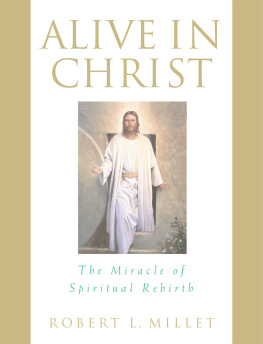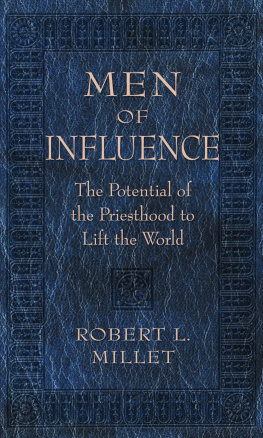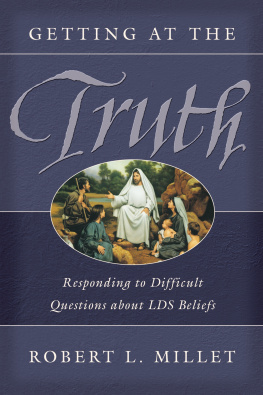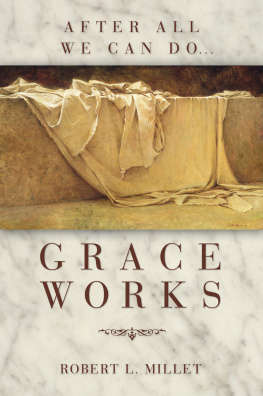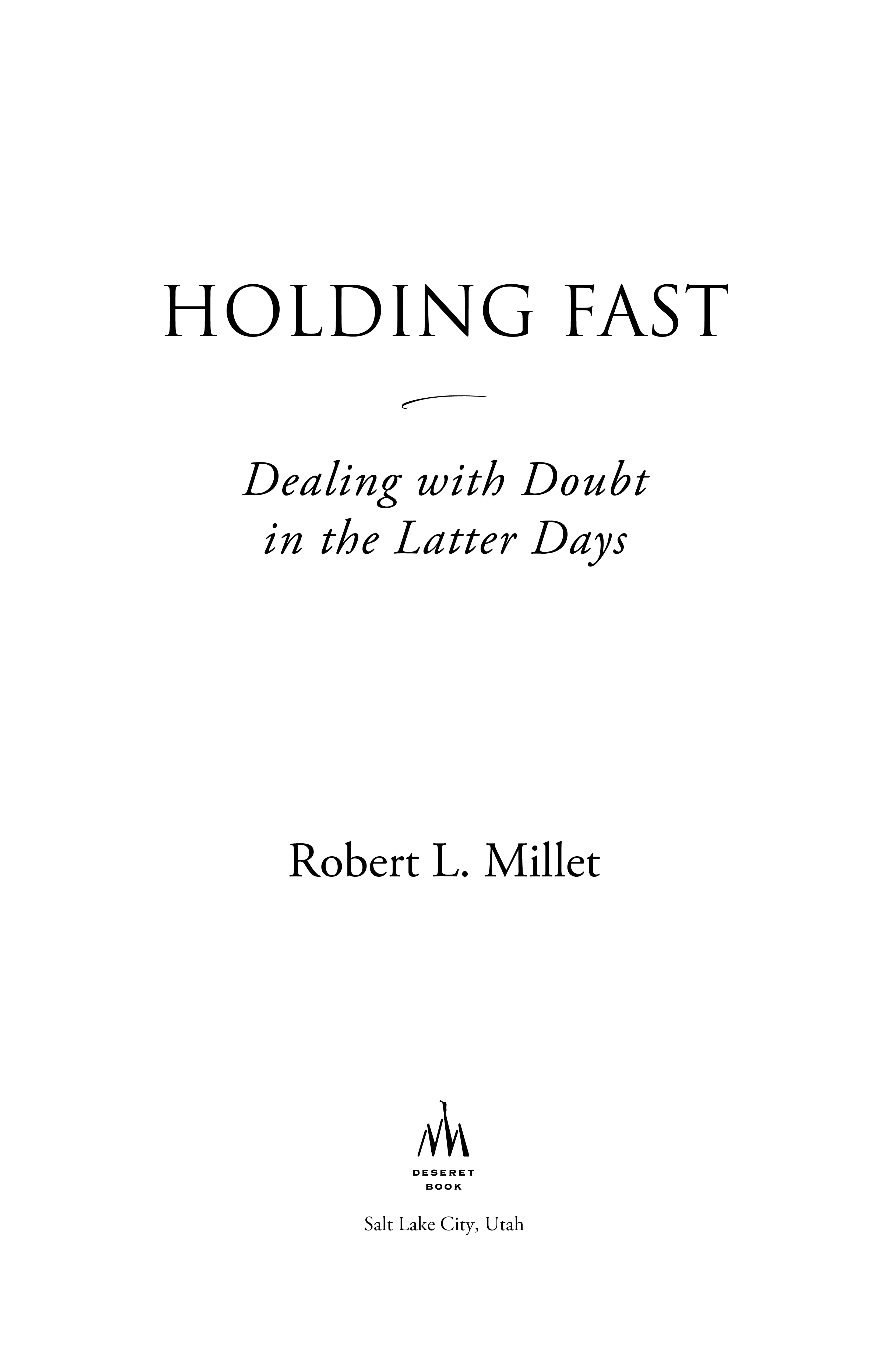2008 Rober L. Millet.
All rights reserved. No part of this book may be reproduced in any form or by any means without permission in writing from the publisher, Deseret Book Company (permissions@deseretbook.com), P.O. Box 30178, Salt Lake City Utah 84130. This work is not an official publication of The Church of Jesus Christ of Latter-day Saints. The views expressed herein are the responsibility of the author and do not necessarily represent the position of the Church or of Deseret Book. Deseret Book is a registered trademark of Deseret Book Company.
Deseret Book is a registered trademark of Deseret Book Company.
Visit us at DeseretBook.com
Library of Congress Cataloging-in-Publication Data
Millet, Robert L.
Holding fast : dealing with doubt in the latter days / Robert L. Millet.
p. cm.
Includes bibliographical references (p. ) and index.
ISBN 978-1-59038-919-5 (paperbound)
1. Spiritual lifeThe Church of Jesus Christ of Latter-day Saints.
2. Faith. 3. The Church of Jesus Christ of Latter-day SaintsDoctrines.
I. Title.
BX8656.M543 2008
248.489332dc222008019641
Printed in the United States of America
Publishers Printing, Salt Lake City, UT
10987654321
To Paul H. Peterson (19412007)
valued friend, outstanding teacher, and personal mentor, a man who faced questions with faithful optimism and sought to instill faith all his days
Into my heart, purified of all sin, there entered a light which came from on high and then suddenly, and in a marvelous manner, I saw certainty succeed doubt.
Cyprian (a.d. 205258)

Preface
Some six months before his death and resurrection, Jesus and his three chief apostlesPeter, James, and Johndescended the Mount of Transfiguration, no doubt contemplating the majesty and import of what they had just experienced. When they reached the bottom of the mount, they were immediately surrounded by a group of people who were a bit perplexed. A man had brought to the other members of the Twelve his son, who had a dumb spirit, that is, a devil (Mark 9:17). The father had pleaded with the other apostles to cast out the evil spirit, but they had been unable to do so.
Jesus spoke tenderly to the grieving father, If thou canst believe, all things are possible to him that believeth. Then came those wonderfully painful but honest and revealing words, a phrase that touches each one of us who falls short, who misses the mark, who wonders whether we have what it takes to be a full-fledged disciple of the Nazarene: And straightway the father of the child cried out, and said with tears, Lord, I believe; help thou mine unbelief (Mark 9:24; emphasis added).
The fathers words are plain enough for a child to understand. They represent a genuine, heartfelt acknowledgment of personal weakness but a weakness no different and no more serious than many of us would feel on such an occasion.
Another rendering of this passage is as follows: I do believe; help me overcome my unbelief (New International Version, Mark 9:24; emphasis added). It is as though the father of the possessed child had uttered the following: O Lord Jesus, you know all things. You know my heart. You know where I stand, and you know where I fall. You, above all others on this earth, know where and when I wander, how and in what manner I stray, and why I am lacking in faith. But I know who you are: you are the Christ, the Messiah, the Anointed One, the Son of the Living God, our Savior and Redeemer. You can do all things. You can heal the sick, cause the lame to walk, still the winds and the waves, and even raise the dead. I know that you can strengthen me, strengthen my faith; I know you can banish from my soul doubt and fear, that you can bestow faith that will make me whole.
This expression sets forth what we know well from other scripturesthat when we confess our weakness to him who has all power, we open ourselves to the Masters strength (see 2 Corinthians 12:810; Ether 12:27). It also highlights a vital verity: that each one of us finds ourselves somewhere along the continuum of faithstriving to know more surely, seeking to acquire a conviction that defies doubt, and longing to enter that settled conviction of the truth that disperses darkness and issues us into the rest of God.
This book has been written to those who know and who know they know. It has been written to those who wonder, who have unanswered questions and unresolved issues. And it has been written to those who are solid in the faith but who want to gain that testimony, that quiet but comforting assurance, that serves as an anchor to the soul and a refuge of safety for those timesand, yes, they do come and will yet comewhen the winds and storms of adversity beat with a fury upon our houses of faith. It is written for those who yearn to have a faith that is unshaken and unshakeable (see Jacob 7:5; Enos 1:11). We may not have all the answers, but we can be secure in our personal witness; we may not have a ready reply for every challenge, but we need not be troubled or discouraged or dislodged from the rock of our Redeemer.
In the preparation of this work, I am indebted to many students and faculty colleagues whose questions and suggestions have touched my heart, stretched my mind, and challenged me to achieve a simplicity beyond complexity, to articulate clearly why I know what I know. I am grateful for my treasured association with men and women who have come to know, by the power of the Holy Ghost, that Jesus Christ is the Son of the living God and that he was crucified for the sins of the world. I am grateful as well to those noble souls who have, for the time being, believed on their words and testimony. Both groups have charted a course leading to eternal life (D&C 46:1314). In short, I am grateful for those who have chosen to believe.
I appreciate Cory H. Maxwell and the publication staff at Deseret Book Company for their encouragement and expertise. I especially thank my friend of many years, Suzanne Brady, whose simple but substantive editorial touch transforms a pretty good manuscript into a book an author is pleased to call his or her own.
Although I am indebted to many, many people through the years who have taught, counseled, chastened, and inspired me so that I could be in a position to write a book such as this, I take full responsibility for its content. I have sought diligently to write in a manner that would be in harmony with the teachings of holy scripture and the words of living prophets and apostles, but I alone am responsible for the conclusions drawn from the evidence cited. This work is not an official publication of either The Church of Jesus Christ of Latter-day Saints or Brigham Young University.
Notes
See Smith, Gospel Doctrine, 58, 126.

Through a Glass Darkly
In my younger days I heard members of the Church bear testimonies of every sort. One person would say, I know that God answers prayers, for he has answered mine. Another would declare, I know that revelation is real, for I have received revelation. A third might affirm, I know that the atonement of Jesus Christ works, for I have had my own sins remitted. I know what it feels like to be pure.
As I reflect on those times, I realize that these were more than statements of belief or witnesses of a given doctrine. They were expressions of actual spiritual experiences Church members had enjoyed. Theirs wasnt simply an intellectual disclosure but rather a report of personal engagement with things divine.

